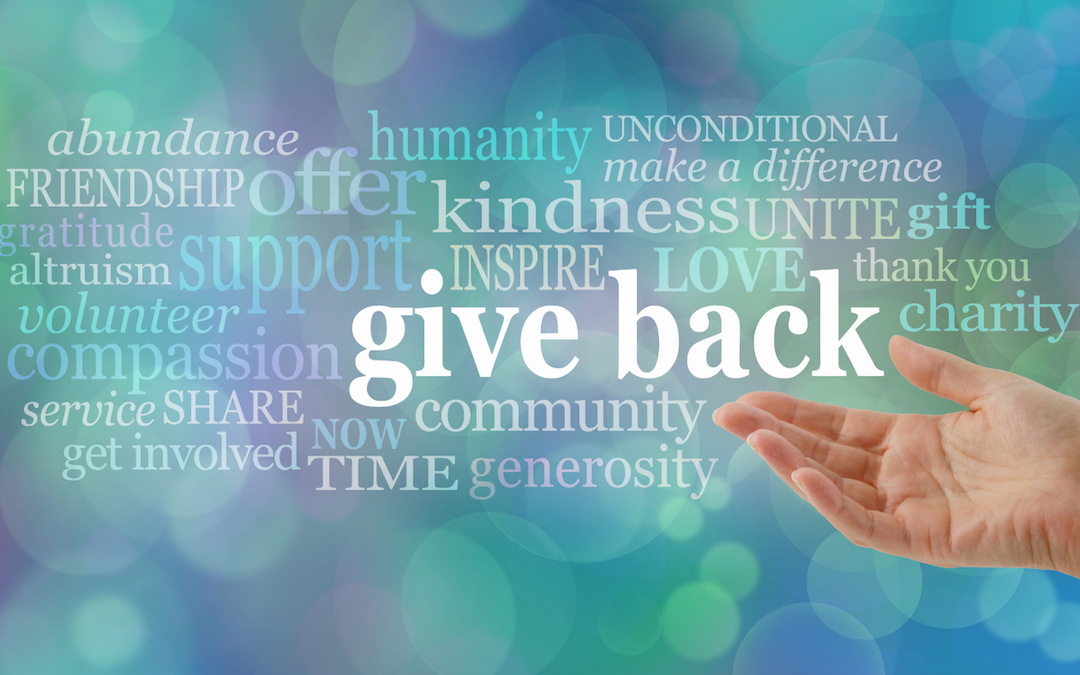In today’s fast-paced world, where individual success often takes precedence, the act of giving back can sometimes fall by the wayside. However, numerous studies and personal anecdotes suggest that the benefits of altruism extend far beyond the recipients of our generosity. Surprisingly, one of the primary beneficiaries of giving back is our own mental health. Whether volunteering at a local shelter, donating to a charity, or simply helping a neighbor in need, giving can have profound implications for our psychological well-being. In this post, we’ll explore the surprising mental health benefits of giving back, shedding light on why this selfless act is actually a gift to ourselves.
The Science Behind Altruism and Mental Health
Altruism’s impact on our well-being is a subject of keen interest among researchers. Studies have illuminated how engaging in selfless acts triggers a release of endorphins in our brain, often described as the “helper’s high.” This biological response elevates our mood and plays a crucial role in diminishing stress levels. Notably, the act of volunteering has been linked to significantly lower depression rates, as highlighted in findings from the “Journal of Health and Social Behavior.” This association is particularly pronounced among individuals aged 65 and above, showcasing the therapeutic potential of altruistic behavior. These insights into the psychological benefits of giving back reveal a compelling link between our mental health and our acts of kindness to others. Through this lens, altruism emerges as a moral imperative and a vital component of our psychological resilience and emotional well-being.
Strengthening Community Bonds Through Generosity
Generosity is a powerful catalyst for enhancing social cohesion and nurturing a sense of community connection. When individuals commit to acts of giving, they lay the groundwork for a culture steeped in mutual support and shared values. This creates a ripple effect, encouraging others to give back further solidifying the community’s fabric. Such environments are characterized by an atmosphere of trust and cooperation, making them more resilient in the face of challenges. Giving and receiving fosters a profound sense of belonging among community members, a fundamental human need essential for psychological well-being. Engaging in communal acts of generosity helps address immediate needs and contributes to a sustained improvement in communal life, making neighborhoods safer, more inclusive, and supportive. By participating in these acts of kindness, individuals can experience a heightened sense of purpose and connection, reinforcing the critical role that giving back plays in cultivating a vibrant and healthy community.
The Role of Gratitude in Giving Back
Gratitude stands as a fundamental element within the cycle of altruism. Engaging in giving not only extends support to those in need but simultaneously nurtures a sense of thankfulness within ourselves. This shift towards gratitude significantly influences our mental landscape, redirecting our attention from deficits to the abundance we possess and can share. According to research findings, the practice of expressing gratitude has been closely associated with enhanced happiness levels, reduced stress, and even notable improvements in physical health. Participating in acts of giving cultivates this cycle of gratitude, enriching the giver and receiver’s emotional and psychological well-being. This dynamic underscores the profound impact that a mindset of gratitude, fostered through giving, can have on cultivating a more positive, healthful, and fulfilling existence.
Overcoming Obstacles to Giving Back
Facing hurdles on the path to altruism is common, yet they shouldn’t deter us from the rewarding experience of giving back. These challenges, whether they stem from a busy schedule, financial concerns, or uncertainty about where to start, can be navigated with a shift in perspective and approach. It’s important to remember that impactful giving doesn’t necessitate grand gestures; even the smallest acts of kindness can make a significant difference. To ease into the practice, consider exploring local organizations or community groups that align with your interests and offer flexible opportunities to contribute. Leveraging these resources can provide guidance and support, making it more feasible to participate in giving activities that accommodate your lifestyle and capabilities. By adopting a more accessible and adaptable view of altruism, we can overcome barriers and discover meaningful ways to contribute to our communities, fulfilling our desire to help and enhancing our mental well-being through the power of giving.
Practical Tips for Integrating Giving Back into Your Life
Integrating acts of kindness and service into your everyday routine can significantly enhance your community’s well-being and mental health. Here’s how to make giving back a seamless part of your lifestyle:
- Keep It Simple: Embark on your philanthropic journey with small, manageable deeds. Offer to grocery shop for an elderly neighbor or contribute a couple of hours at a local food bank.
- Align with Your Interests: Seek out opportunities that resonate deeply with you. When your efforts mirror your passions, the experience is both meaningful and fulfilling.
- Team Up: Involve your social circle in your philanthropic activities. Collective action not only amplifies the impact but also increases the joy and satisfaction derived from giving.
- Be Practical: Assess your availability and resources honestly, opting for commitments that you can sustain over time without feeling overwhelmed.
- Reflect and Grow: Regularly take stock of the emotional and psychological benefits you gain from giving back. This practice helps recognize the value of your contributions and motivates continued generosity.
By adopting these strategies, you can smoothly incorporate giving into your daily life, leading to a more prosperous, more connected existence.
Consider Adding EJ’s PJs to Your Giving Back Strategy
Consider integrating EJ’s PJs into your giving-back initiatives. This 501(c)(3) charity, founded by Patricia Poggi as a tribute to her sons, Edward, Jeremy, and Patrick, has evolved from a family project into a community-wide endeavor, amassing increasing pajama donations annually with the support of local businesses and the community. EJ’s PJs collaborates with various organizations, participating in events like the Town of Brookhaven’s Annual Youth Interface Program Toy Drive and even hosting their own, such as the Photos with Santa Pajama Party. Featured on local news, EJ’s PJs exemplify how collective compassion can support needy children, showcasing community involvement’s power in charitable acts.

